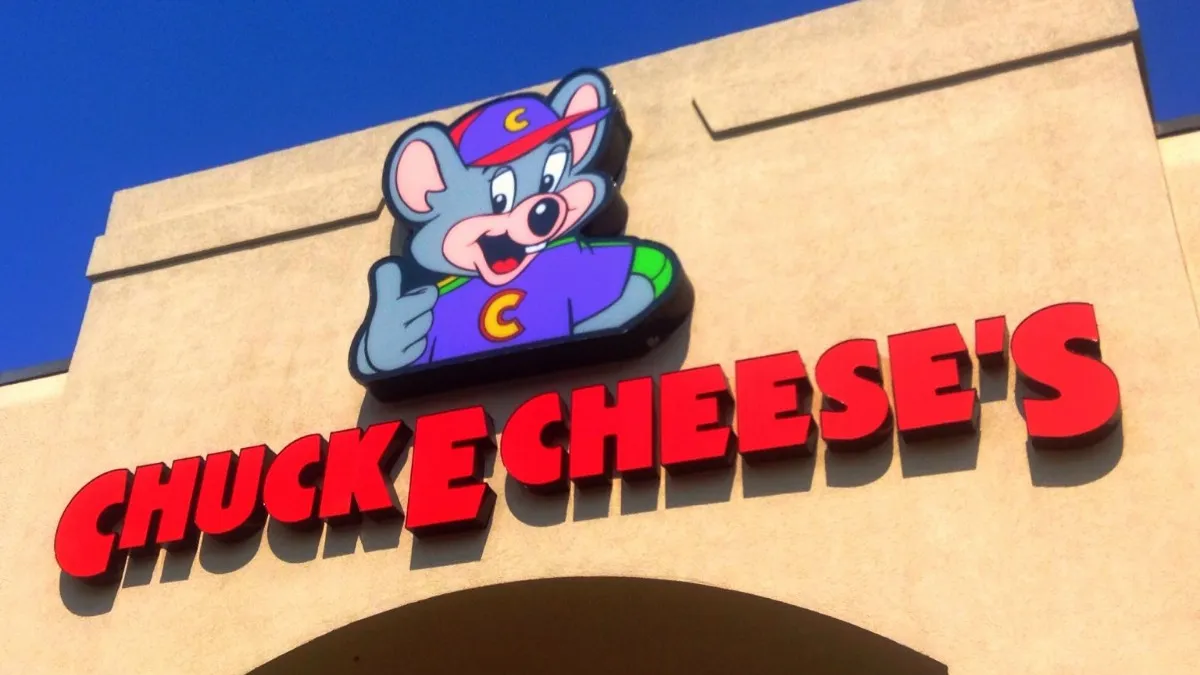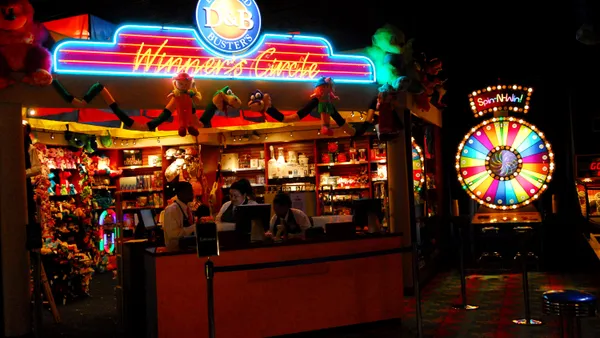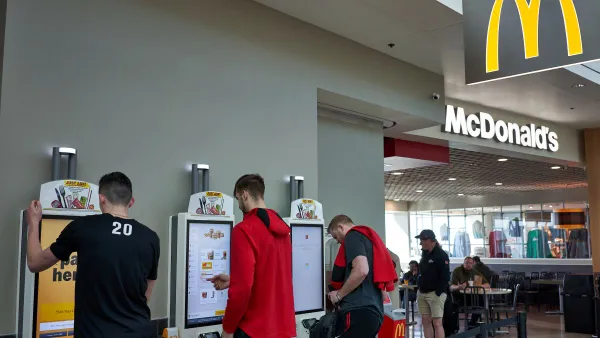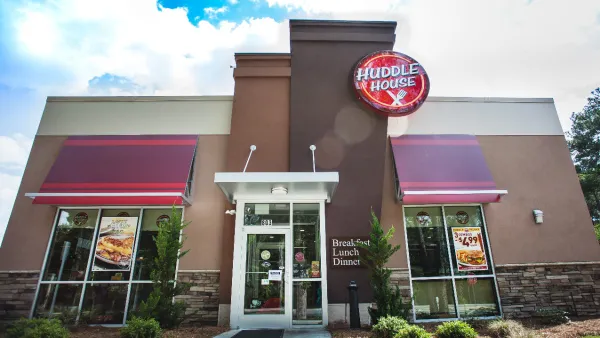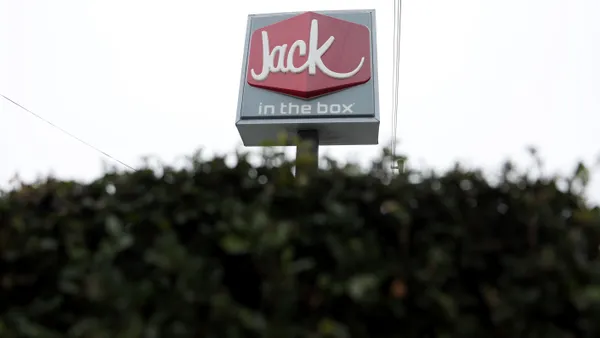UPDATE: June 26, 2020: CEC Entertainment filed a motion Thursday with the U.S. Bankruptcy Court for the Southern District of Texas seeking to abandon 45 leases at closed or underperforming locations. These locations were already closed and are currently vacant. Of these, 27 were closed due to COVID-19, four were closed due to lockouts, three were closed following expired leases and 11 were permanently closed before the coronavirus closures. The closed locations, which include 35 Chuck E. Cheese units and 11 Peter Piper Pizza restaurants, are in 24 states.
Dive Brief:
- CEC Entertainment, parent company of Chuck E. Cheese and Peter Piper Pizza, filed for voluntary protection under Chapter 11 bankruptcy on Thursday, according to a press release. The company said it had between $1 billion and $10 billion in liabilities in the filing. It plans to use the time and legal protections to continue its discussions with financial stakeholders and its landlords to work toward a balance sheet restructuring that will help reopening and its long-term strategic plans. The filing doesn’t impact CEC’s franchised locations, of which there were 83 domestic and 103 international locations as of Dec. 29, 2019.
- As of June 24, 266 company-operated Chuck E. Cheese and Peter Piper Pizza locations reopened. The company expects to maintain operations at these locations during the bankruptcy process providing dine-in, delivery and carryout, hosting birthday parties during dedicated hours and supporting fundraisers and events in the weeks and months ahead. The company plans to open more locations each week.
- During the bankruptcy process, the company will pay employees and continue existing benefits programs, honor guest gift cards and uphold its commitments under franchising and licensing agreements.
Dive Insight:
While nearly a half dozen companies have declared bankruptcy since the start of the pandemic, CEC Entertainment is the largest, according to Restaurant Business. Le Pain Quotidien U.S., FoodFirst Global Restaurants, Sustainable Restaurant Holding and Toojay’s filed for Chapter 11 bankruptcy in the last few months. Garden Fresh Restaurants ceased operations after filing for Chapter 7 bankruptcy in May. With the National Restaurant Association predicting the restaurant industry will lose $240 billion by the end of the year, it’s likely these are only the first among many.
CEC Entertainment, which saw sales plummet after it was forced to close all of its dining rooms following state-mandated orders, hired advisors in May to help it explore its options after creating a restructuring committee within its board of directors in April. In early June, CEC Entertainment was reportedly working with lenders to raise money to help it avoid bankruptcy. The company was facing a $1.9 million quarterly payment on loans due at the end of the month. The timing of the bankruptcy means it could have more time to work with creditors to reorganize its debt.
A handful of potential buyers also reportedly expressed interest in the company and bankruptcy could allow the company with a restructured balance sheet to be more appealing to buyers. The filing didn’t indicate that the chain was preparing for a sale, but this move is not unheard of. Perkins & Marie Callender's, for example, filed for Chapter 11 bankruptcy to eliminate liabilities prior to the sale of its subsidiaries.
The bankruptcy filing could be the only surefire way for the company to reduce its $1 billion debt. CEC parent Queso Holdings and controlling stockholder Apollo Global attempted a merger deal with Leo Holdings last year that would have made CEC public and reduce debt by $300 million, but the deal fell through. Bankruptcy will also have the opportunity to remove underperforming locations, reduce overall administrative expenses and allow it to refocus on stores that are performing well.
Without all this debt, the company will be able to refocus on its turnaround strategy, which includes a remodeling program, All You Can Play, a loyalty program and gaming app and national delivery. These initiatives helped the company grow comp sales by 2.7% in 2019. While it also grew revenue by almost 2% in 2019 to $913 billion, it had a net loss of $29 million with almost 10% of its revenue going toward interest payments. The company also plans to maintain operations and reopen dining rooms while it goes through proceedings indicating that it doesn't plan to go anywhere anytime soon.



